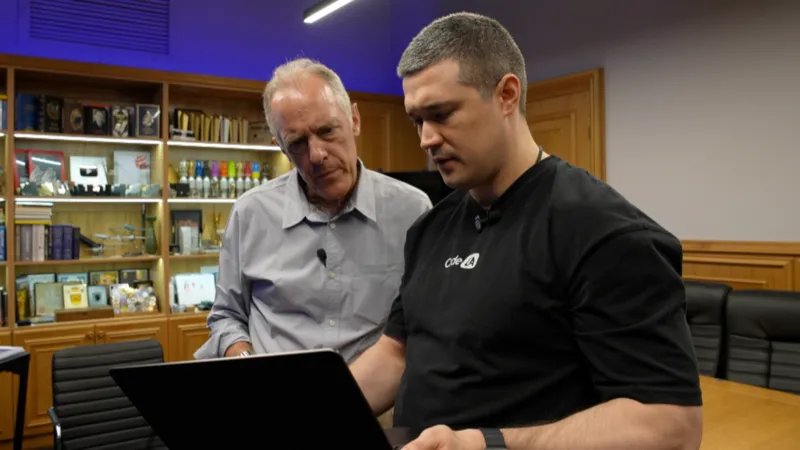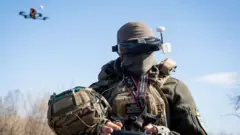
Ukraine launches new points for killing Russians scheme- BBC

The images come in every day. Thousands of them.
Men and equipment being hunted down along Ukraine’s long, contested front lines. Everything filmed, logged and counted.
And now put to use too, as the Ukrainian military tries to extract every advantage it can against its much more powerful opponent.
Under a scheme first trialled last year and dubbed “Army of Drones: Bonus” (also known as “e-points”), units can earn points for each Russian soldier killed or piece of equipment destroyed.
And like a killstreak in Call of Duty, or a 1970s TV game show, points mean prizes.
“The more strategically important and large-scale the target, the more points a unit receives,” reads a statement from the team at Brave 1, which brings together experts from government and the military.
“For example, destroying an enemy multiple rocket launch system earns up to 50 points; 40 points are awarded for a destroyed tank and 20 for a damaged one.”
Call it the gamification of war.
Each uploaded video is now carefully analysed back in Kyiv, where points are awarded according to a constantly evolving set of military priorities.
“I think, first and foremost, it’s about quality data, the mathematics of war, and understanding how to use limited resources more effectively,” says the man behind the e-points scheme, Mykhailo Fedorov, Ukraine’s Minister of Digital Transformation.Kill Russians, win points: Is Ukraine’s new drone scheme gamifying war?
Ukrainian soldiers can trade videos of confirmed kills for points, which they can use to buy equipment
The images come in every day. Thousands of them.
Men and equipment being hunted down along Ukraine’s long, contested front lines. Everything filmed, logged and counted.
And now put to use too, as the Ukrainian military tries to extract every advantage it can against its much more powerful opponent.
Under a scheme first trialled last year and dubbed “Army of Drones: Bonus” (also known as “e-points”), units can earn points for each Russian soldier killed or piece of equipment destroyed.
And like a killstreak in Call of Duty, or a 1970s TV game show, points mean prizes.
“The more strategically important and large-scale the target, the more points a unit receives,” reads a statement from the team at Brave 1, which brings together experts from government and the military.
“For example, destroying an enemy multiple rocket launch system earns up to 50 points; 40 points are awarded for a destroyed tank and 20 for a damaged one.”
Call it the gamification of war.
Each uploaded video is now carefully analysed back in Kyiv, where points are awarded according to a constantly evolving set of military priorities.
“I think, first and foremost, it’s about quality data, the mathematics of war, and understanding how to use limited resources more effectively,” says the man behind the e-points scheme, Mykhailo Fedorov, Ukraine’s Minister of Digital Transformation.
Mykhailo Fedorov, Ukraine’s Minister of Digital Transformation, tells the BBC’s Paul Adams how the system works
But after three and a half long years of grinding, all-out war, the system has another vital use.
“It’s also about motivation,” Fedorov says. “When we change the point values, we can see how motivation changes.”
Fedorov’s office sports a huge video screen with dozens of live feeds from Ukrainian drones flying over the front lines.
Together, the feeds provide a vivid glimpse into Ukraine’s drone war, in which commanders claim flying robots now account for an estimated 70% of all Russian deaths and injuries.
Since the early days of Russia’s full-scale invasion, social media feeds have been full of drone videos, usually set to soundtracks of thudding heavy metal music.
The turret of a tank, exploding in a ball of flame. A lone soldier, fending off an attacking drone with a rifle or a stick.
It can make for gruesome viewing. Each video celebrating the death of an opponent. The video going fuzzy as the drone explodes.
But beyond a sense of grim satisfaction, hard-pressed front-line units now operate in the knowledge that evidence of their exploits can bring them rewards.





